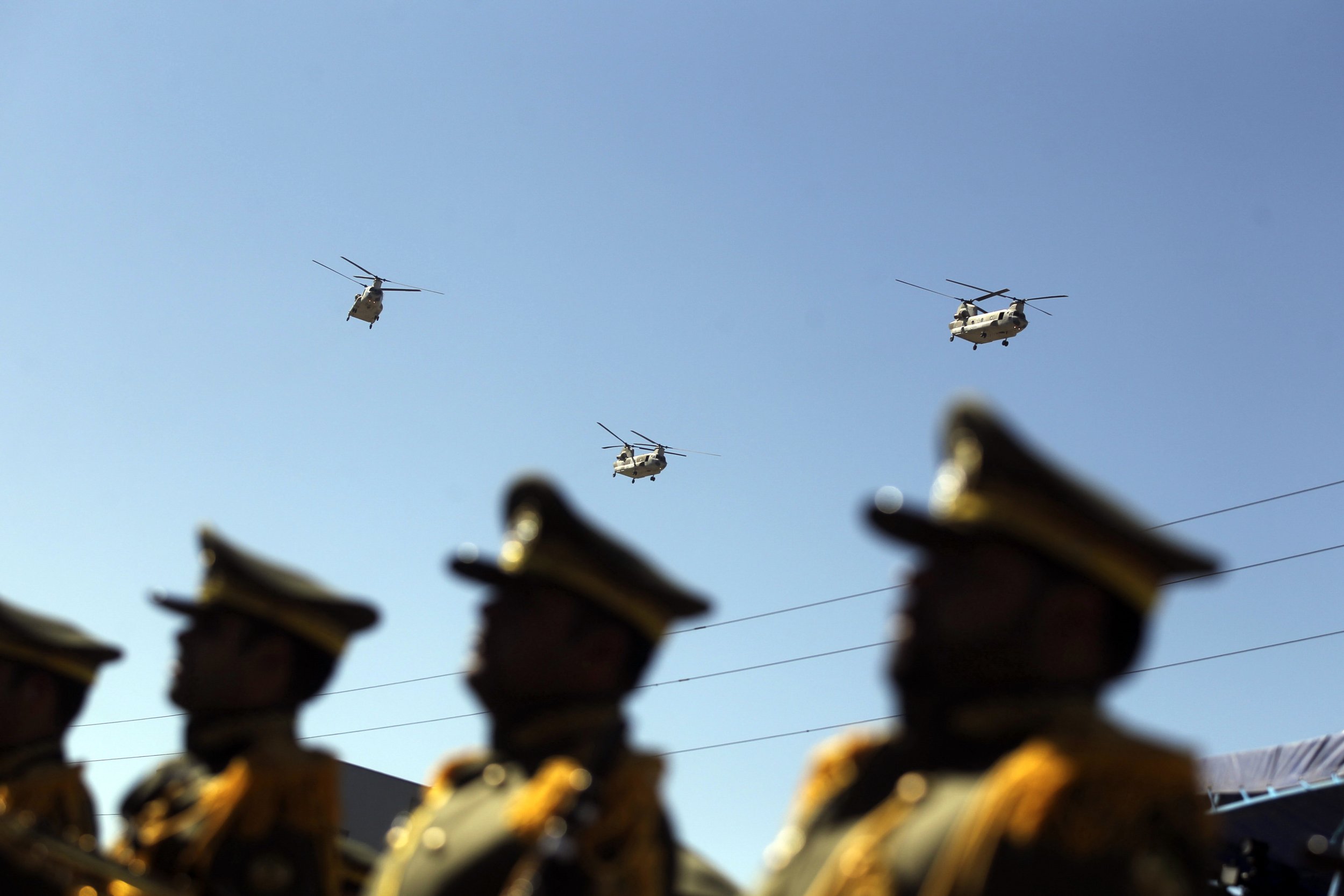
Much has been written about the cold war between Saudi Arabia and the Islamic Republic of Iran. Though this deadly strategic competition has not caused the sweeping disorder in which the Middle East finds itself, it has widened and deepened it.
Whether in Iraq, Syria, Yemen, Afghanistan, Bahrain, Lebanon or elsewhere, the feud between Riyadh and Tehran has heightened societal divides and inflamed sectarian tensions, harming any efforts to defeat the Islamic State militant group (ISIS), end the civil war in Syria, stabilize Iraq, stop the fighting in Yemen, and solve the political crisis in Lebanon.
While both countries have always preferred to do battle by proxy—because they have more to lose than gain from a direct fight—relations have reached a boiling point, raising the possibility, for the first time in the history of their antagonistic relationship, of the cold war turning hot. This has less to do with the intensifying vitriol the Saudi and Iranian leaderships have hurled at one another recently (although that is surely of concern) and more with objective trends that go beyond sudden emotional bursts.
Indeed, five strategic trends help explain why escalation potentially leading to direct Iranian-Saudi confrontation is more likely now than ever before.
1. Flashpoints
First, there simply are more opportunities, or flashpoints, for them to clash. Until the Arab uprising in 2011, Iran and Saudi Arabia competed for influence primarily in Iraq, Lebanon, Bahrain, and to some extent, the Palestinian Territories by backing their respective allies.
Today, the Saudis and the Iranians are locked in a much more dangerous and kinetic struggle in Syria and Yemen. In Syria, Saudi Arabia is committed to the ouster of Syrian President Bashar Al Assad, a close ally of Iran, and has repeatedly threatened to step up its military involvement there, possibly by sending its own troops. Should that happen, it is almost inevitable that Riyadh would clash with Tehran on the battlefield, where Iranian forces and the Lebanese Hezbollah are battling all enemies of Assad.
In Yemen, the conflict is one more Houthi-missile-landing-in-a-Saudi-town away from escalating and spilling over to the waters of the Persian Gulf, where direct engagement between the Iranian and Saudi navies could ensue. Just last week, Tehran warned Riyadh not to approach Iranian waters as the Saudis conducted their first-ever live-fire drills in the Persian Gulf, which will be part of a series. The U.S. Fifth Fleet in Bahrain, which did not participate, is watching this space closely and nervously.
2. New political leadership
Second, there is a new and younger political leadership in Riyadh who is determined to adopt a more assertive Saudi foreign policy and pursue a more aggressive approach toward what they see as an existential Iranian threat.
Gone is the traditionally risk-averse House of Saud. Enter a bolder team in Riyadh, fed up with what they perceive as U.S. passivity with regard to Iranian trespasses in the region and eager to take matters into their own hands.
3. 'Uncertain' U.S. policy
Third, it matters not how many times the Obama administration rebukes charges of U.S. disengagement from the Middle East. U.S. regional partners are convinced that Washington has checked out, or worse, handed over the keys of the region to their worst enemy, Iran.
The result is a strong perception in Gulf capitals of uncertainty regarding U.S. policy. And every time Washington criticizes Riyadh openly about its prosecution of the war in Yemen or support for radical ideology in the region, Tehran registers and, rightly or wrongly, adjusts its assumptions about U.S. security commitments to Gulf countries.
4. Russia
Fourth, Russia is currently a major security player in the Middle East. While Tehran is not ecstatic about Moscow encroaching on its own sphere of influence, the reality is that the Iranians benefit tremendously from a new and capable security partner to achieve their strategic objectives, which seem compatible with Russia's (shaping the regional order to their liking).
As the axis between Iran and Russia further matures, the likelihood of the former engaging in more aggressive and provocative acts that could lead to war with Saudi Arabia increases.
5. Iran's offensive capabilities
Lastly, Iran's missile capabilities have improved drastically, giving it new and powerful means to engage in offensive action in ways it couldn't before.
Iran's focused efforts over the past few years to prioritize improved accuracy over increases in missile range suggest a doctrinal shift from pure deterrence to offense. This doesn't mean that Iran's enhanced military capabilities will encourage it to act irrationally or all of a sudden ignore Washington's enormous military presence in the region. But more precise missiles do provide Tehran with a set of military options and greater operational flexibility, which would challenge U.S. plans in the Persian Gulf.
The decades-long enmity between Saudi Arabia and Iran precedes President Obama, but during his presidency, with the notable exception of a limited arms control accord reached with Tehran that caps its nuclear program for the next decade, he has done very little to reverse, or at least arrest, any of these worrying strategic trends.
This is an important reason why the risk of an Iran-Saudi Arabia conflict in the Middle East is higher today than it ever was. Averting such a war will be the next U.S. president's most important and urgent priority in the Middle East.
Bilal Y. Saab is Senior Fellow for Middle East Security at the Brent Scowcroft Center on International Security at the Atlantic Council.
Uncommon Knowledge
Newsweek is committed to challenging conventional wisdom and finding connections in the search for common ground.
Newsweek is committed to challenging conventional wisdom and finding connections in the search for common ground.
About the writer
To read how Newsweek uses AI as a newsroom tool, Click here.








